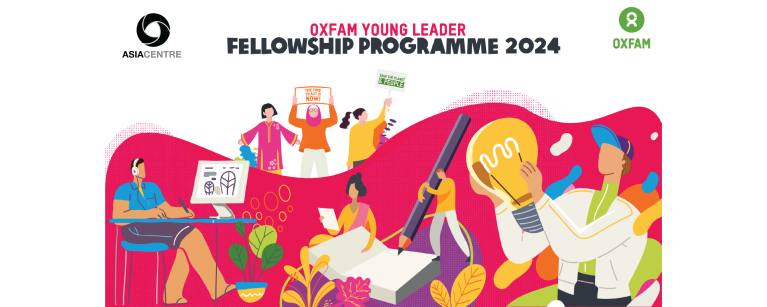Development challenges continue to rise in many parts of Asia as democratic civic engagements fall due to repressions and restrictions, raising concerns about inequality, social justice, gender rights, and climate change is becoming a challenge amid rising authoritarian trends. In a world with declining democracies, retreating of human rights, and shrinking civic engagement, the need to empower the next generation of empathetic leaders has never been more pressing.
Building on the success of the inaugural cohort, Oxfam in Asia and Asia Centre are thrilled to announce the 2nd Cohort of the Oxfam Young Leaders Fellowship Programme in Asia. This transformative initiative aims to equip the selected group of young leaders with tools, skills, knowledge and networks to drive positive change in their communities. Through close mentorship and hands-on practice, this initiative offers an invaluable opportunity for the fellows to strengthen their capacity to make social change happen and sustain.
Benefits
- International learning opportunities and exposure
- Stipend: Each fellow will receive a total amount of USD 3600 (USD 400 per month x 9 months) as a monthly stipend paid in 3 monthly intervals.
- Opportunity to be mentored by experienced international professionals in various fields.
- Opportunity to work with Oxfam in Asia and Asia Centre leadership teams from different regions.
- Support to independently organise a smaller network for influencing and campaigning.
- An opportunity to understand and learn about the international development sector.
Criteria for Nomination
Prospective young fellows must meet the following criteria:
- Aged 27 or below.
- Be a citizen of one of the following countries within Oxfam in Asia offices: Bangladesh, Cambodia, India, Indonesia, Laos, Myanmar, Nepal, Pakistan, Philippines, Sri Lanka, Thailand, Timor-Leste, or Vietnam.
- Must be a graduate.
- Demonstrate creativity and motivation to make social change happen and sustain.
- Showcase skills and aptitude to use digital/other tools for advocacy.
- Professional English proficiency (written and spoken).
- We encourage women and those from minority communities to apply.
- Not currently employed and will not take full time employment during the fellowship.
- Interest to contribute to the following thematic areas:
Gender Justice
Climate Justice
Economic Inequality
Civic Space and Democracy
Digital Rights and Data Justice
Inclusive and Responsible Value Chains/Business
Public Mobilisation Building/Engaging with Social Movements
Media Engagement and Communications
Expectations/Tasks
- Dedicate a minimum of 30-40 hours per week to implement the proposed activities agreed with mentors for 9 months from the starting date.
- Attend an in-person induction workshop in Bangkok, Thailand.
- Create and maintain a network of 50 or more youth individuals.
- Attend monthly online meetings and report progress and setbacks to mentors.
- Undertake leadership and activity roles throughout the fellowship, including during the induction workshop, monthly meetings and end-of-project convening.
- Develop content for the “Civic-Asia” website.
- Attend an end-of-project convening either online or onsite (to be determined later).
Application Process
- Candidates must submit their CV, a cover letter identifying the areas of interest as mentioned above and a motivation letter which provides a rationale for why they are interested in specific thematic areas, any previous work/assignment carried out, relevant academic background, their career ambition, and aim from the fellowship via this Google Form.
- Candidates are also required to submit two recommendation letters from relevant individuals who can vouch for their skills, achievements, and professionalism
- Short-listed candidates will be interviewed by a panel of judges, who will use the criteria (see Judging Criteria below) in selecting eight Young Fellows to participate in the Programme.
- As part of the selection process, candidates will be tasked with a written exercise to further demonstrate their commitment to the programme.
Timeline
Call for application announcement 22 April 2024
Application submission deadline 19 May 2024
Announcement of short-listed candidates 28 May 2024
Interviews 13-5 June 2024
Results announcement 10 June 2024
Induction meeting 24 - 28 June 2024
Judging Panel
The Judging Panel will consist of media professionals and inequality experts, members of Asia Centre, Oxfam International, and independent practitioners.
Judging Criteria
Experience Education background and previous experience in activities about social change in Asia. 15
Motivation Willingness to make social change happen and display capacity to sustain advocacy work. 30
Objectivity Career ambition and learning objective from fellowship. 15
Knowledge Knowledge of the domain chosen. Rationale and interest in the chosen area of work. 20
Advocacy Skills Adopting different digital tools for advocacy: creativity, leadership and teamwork skills. 20
For more information, visit our frequently asked questions.
Recap of First Cohort of Oxfam Young Leaders Fellowship Programme
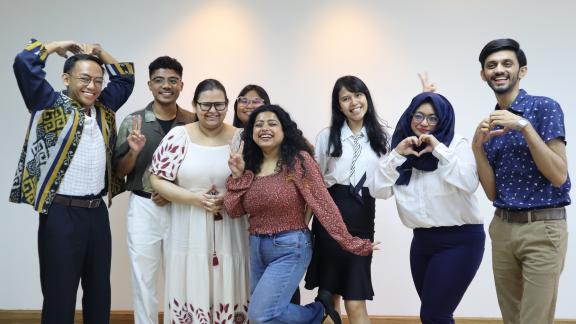
Eight Fellows Selected to Mobilise Young People in Their Countries
Under the Oxfam Young Leaders Fellowship Programme 2023, eight fellows initiated leadership projects to mobilize youth in their countries on climate change, gender, civic space, and citizen movements.
Their journey began in July with a four-day induction, introducing mobilisation techniques, digital platform usage, leadership principles, and human rights concepts. The fellows, selected from a diverse pool of over 400 candidates, represented individuals determined to bring about positive change within their societies. Throughout the meeting, they participated in leadership modules, heard from guest speakers on global issues, and made site visits to organisations like the Foreign Correspondents’ Club of Thailand and Google Thailand. They also presented their projects, which focus on pressing global issues such as climate justice, women’s rights, and civic space preservation, receiving valuable feedback.
Each fellow had an Oxfam mentor for support. They launched their projects on social media and hosted sessions on chosen themes with young people in their respective countries.
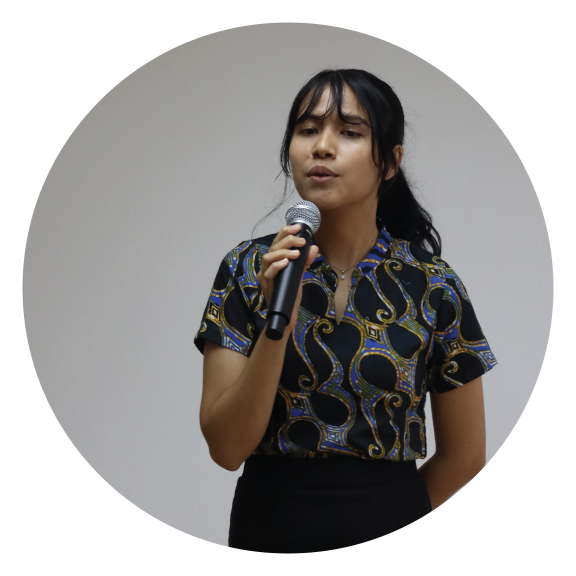
Chikita Edrini Marpaung
Chikita Edrini Marpaung is a public interest lawyer from Jakarta and has five years of experience working with different organizations including LBH Jakarta (Jakarta Legal Aid) and PBHI (Indonesian Human Rights and Legal Aid Organization).
As an Oxfam fellow, Chikita provided legal education to young people and trained them about their fundamental and human rights.
Since the commencement of the project The Lawhum, Chikita conducted several meetings and consultations with key individuals who were responsible for serving as speakers and providing input for the training module and overall training program.
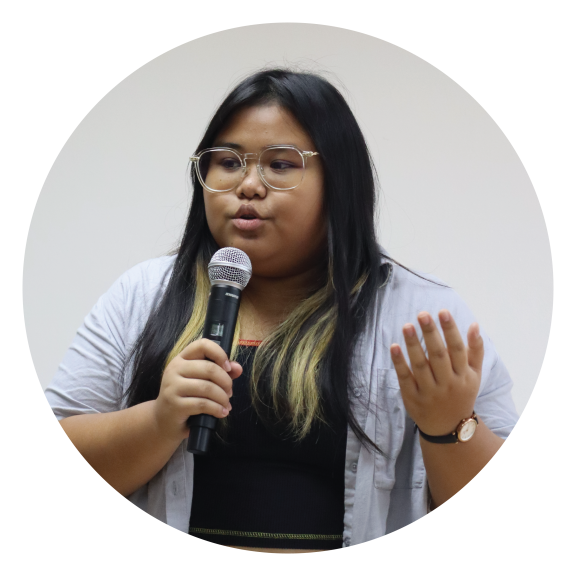
Ellenor Joyce G. Bartolome
Ellenor Joyce G. Bartolome works with the Freedom from Debt Coalition and has previously worked with Global Call to Action Against Poverty.
Her project ‘Hábi’ (a Filipino word which means weave), inspired from the stages of weaving, trained 50 aspiring young public servants and youth leaders through five different modules on policy advocacy, leadership, community mobilization and storytelling.
During the initial month of Project Habi Pilipinas, Ellenor organized two pivotal events: the Grand Orientation and the Learning Session.
The Grand Orientation served as an introduction to the project, offering participants a comprehensive orientation and a detailed schedule overview of the Habi: #YouthCAN as Weavers of Change Program (YWCP) activities. Meanwhile, during the Learning Session, Ellenor and her team delved deep into contemporary challenges related to debt and education.
The YWCP, which Ellenor champions, places paramount importance on empowering the youth to play a central role in nation-building and civic engagement. Conversations at these events revolved around topics such as mobilisations and protests, reinforcing the critical role young individuals play in shaping the nation's future.
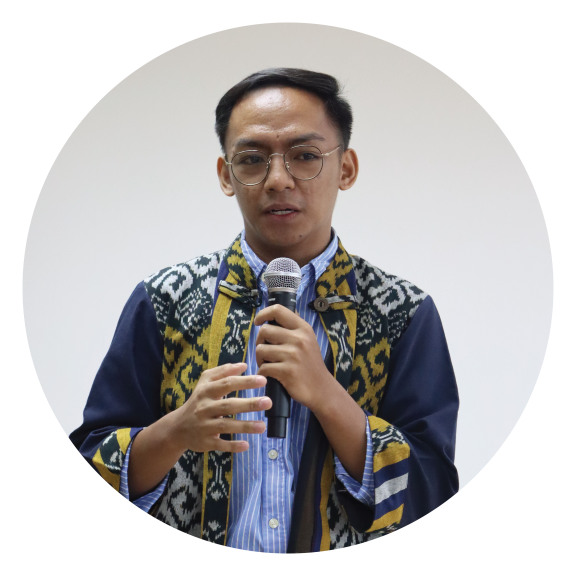
Gerald John C. Guillermo
Gerald John C. Guillermo is a Juris Doctor student at the University of the Philippines College of Law whose professional career includes roles in the academe, government, and non-governmental organizations, having been an active volunteer in youth and civil society organisations, both within the Philippines and internationally.
Gerald’s project, the Keep the Change: Youth Policy Lab, is all about empowering Filipino youth. He's on a mission to help them navigate the complex world of Philippine policy and governance. Gerald's vision is clear: he wants to open doors for young voices to actively engage in formal political processes.
But that's not all. He's all about inclusivity. Gerald believes that the best solutions come from diverse perspectives. His initiative brings together voices from all walks of life to tackle complex public issues head-on.
And he's not doing it alone. Gerald is building a dream team, the "Changekeepers Circle," to lead the way as the Executive and Coordination Team for the Lab.
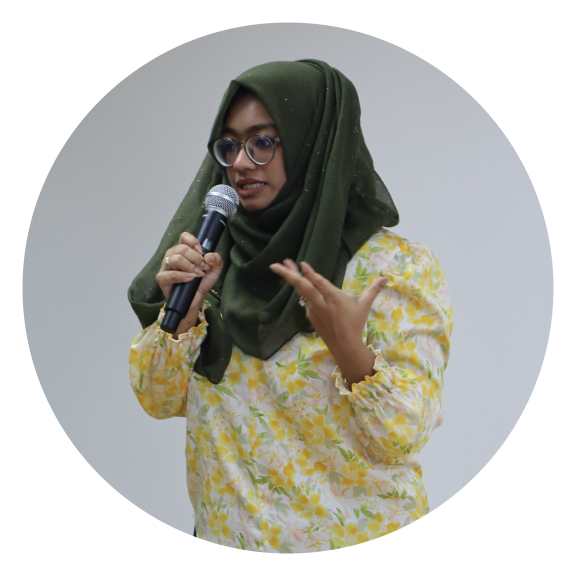
Lamia Mohsin
Lamia Mohsin is a researcher and a climate change advocate with experience of working with UNDP and the Global Centre on Adaption in Dhaka. As the UN Climate Champions Resilience Youth Fellow (2022), she contributed to a series of strategic non-state actor engagements in the buildup to COP26 and COP27.
As an Oxfam fellow, she worked to mobilise, educate and train young people living in disaster-prone areas of the country as local Climate Actioneers.
Lamia developed communication material for the social media campaign under the project title Climate Actioneers to raise awareness on environmental and climate issues.
But Lamia's impact goes beyond digital campaigns. She's also a connector, reaching out to diverse youth groups and organisations in coastal regions. Through thoughtful discussions and collaboration, she's shaped the content and direction of the project sessions.
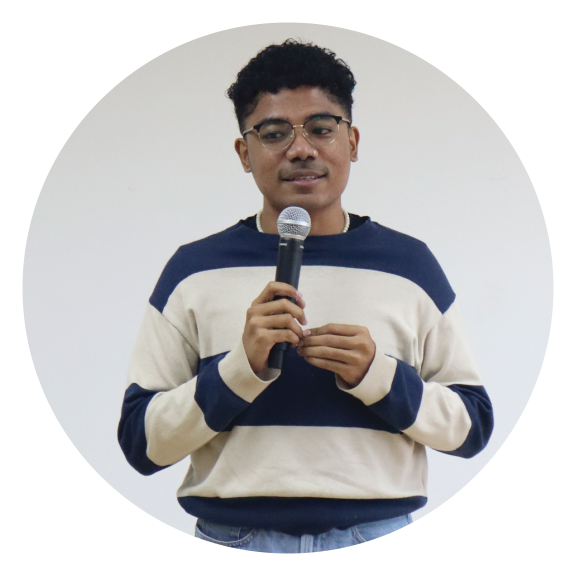
Ricardo Valente Araujo
Ricardo Valente Araujo works with the ASEAN Youth Forum to advocate for human rights and youth empowerment in Southeast Asia and is also an active member of the UNICEF East Asia and Pacific Young People’s Action Team (YPAT).
His project, Gen Z Talk Timor-Leste, is a virtual community platform for Generation Z to connect and express their views on political, economic, and social issues. The peer-to-peer interaction is designed to increase the engagement of young people in civic issues and empower them to make meaningful contributions to the communities they belong.
Ricardo has formed his team of 2 GenZers in Timor-Leste, and recruited partners, including youth-led organizations both within and outside Dili (the capital), to collaborate on creating a podcast for peer-to-peer interaction and organizing the Dialogu Nakloke.
In the month of August, Ricardo and his team made waves in the digital world. Gen Z Talk burst onto the scene, establishing a vibrant presence on four social media platforms—YouTube, Facebook, TikTok, and Instagram. Their impact has been swift, amassing a whopping 800 followers on Instagram alone. This is just the beginning of their journey to amplify voices and foster meaningful connections among the Gen Z community.
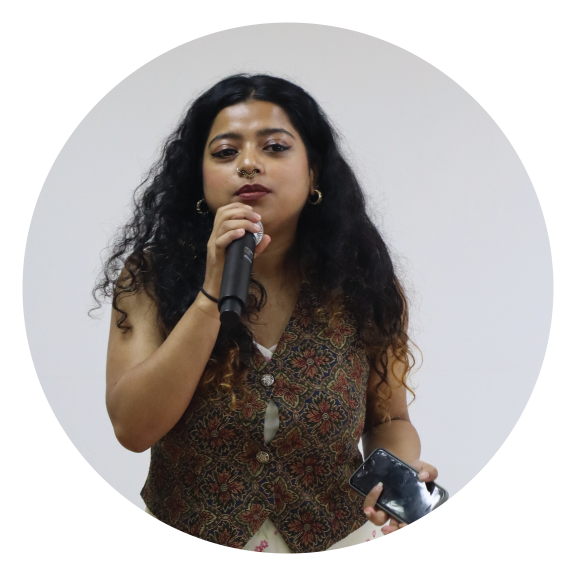
Sanjana Chettri
Sanjana Chettri, an Indian Nepalese, lives in the Himalayan state of Sikkim. She recently completed her Masters in Development Studies from the School of Oriental and African Studies, University of London. Sajana has worked with online research & innovation platform Belongg & social impact measurement company 60 Decibels.
As an Oxfam fellow, she lead a project called Writing on Rights: Organising Young Folks Towards Social and Political Activism to build political consciousness and promote the desire for civic participation among 50 first-generation learners in her home state and neighbouring states in the northeast region of India.
Sanjana successfully assembled a core team of ten young people who share a strong passion for human rights and social justice issues.
Furthermore, she designed a module dedicated to exploring the dynamic role of young individuals in politics. Moreover, they came together at an event in September, where their passion and planning took centre stage.
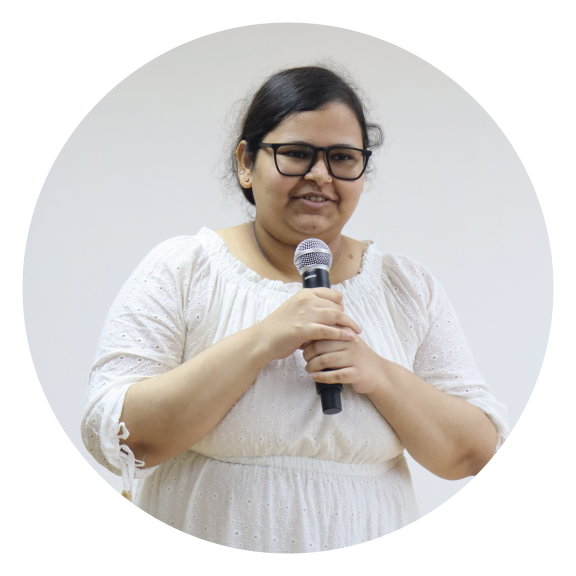
Soumya Mishra
Soumya Mishra is a neuroqueer and autistic person and has an interest in leveraging digital mediums to amplify marginalized voices, bridge existing gaps, and promote inclusivity and accessibility. They made a career switch during the pandemic from content writing to the development sector.
As an Oxfam fellow, Soumya further developed her podcast, Atypical Dikkatein, to chronicle the stories of queer-disabled folx in India.
Soumya's commitment to diversity is evident in their work. They identified and recorded many compelling podcast episodes, featuring the stories of queer-disabled individuals, and skillfully edited, produced, and published episodes on Atypical Dikkatein's podcast channels. They are leveraging the power of social media, crafting engaging posts that promote disability inclusion.
They secured a partnership with queerbeat, an independent collaborative journalism project focused on deeply and accurately covering LGBTQIA+ persons, in their voice, in India. And initiated a promising discussion with Gender at Work India. These connections are poised to make Atypical Dikkatein's initiatives sustainable, with the potential for long-term, large-scale impact, even exploring possibilities with UN Women India.
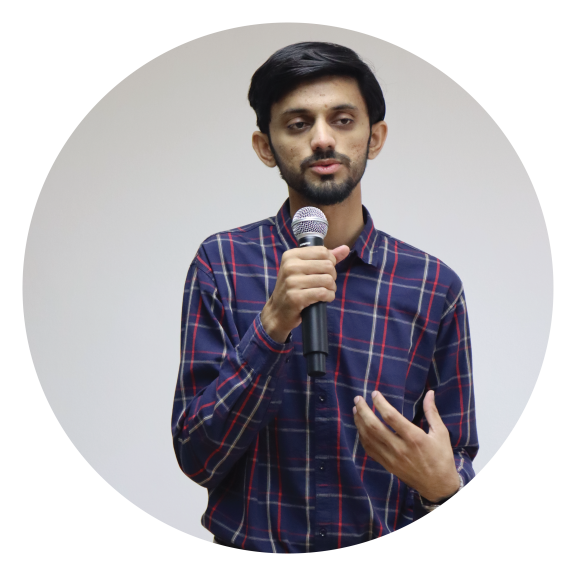
Wajid Zahid
Wajid Zahid is a member of the ICPD 30 Regional Youth Group and an alumnus of the Amplifying Leadership of Local Youth (ALLY) and UNOCT Youth Engagement & Empowerment Program (YEEP) Fellowships. He has worked in the development sector with Initiatives for Sustainable Development and Rahnuma Family Planning Association in Pakistan.
As an Oxfam fellow, Wajid worked on his project, Inclusive Lens, which trains journalists and online content creators on fair and inclusive representation of religious minorities, women and gender minorities and content which does not incite hate.
Wajid's initial effort revolved around promoting awareness of the Inclusive Lens project. He organised a pre-workshop promotional event, inviting digital media developers and interns from the Punjab Women Protection Authority to familiarize themselves with the project and its forthcoming workshop. Wajid's goal was to underscore the importance of grasping critical themes, including misinformation, disinformation, and faith-based reporting.
In the subsequent stage of pre-promotion, Wajid organized an in-person session with Mass Communication students at Government Fatima Jinnah College for Girls. His objective was to attract a diverse audience for his workshops, with a specific focus on marginalised girls, who often go unheard.
Additionally, Wajid developed a comprehensive training manual for his workshops. The ultimate objective was to create content that catered to the specific needs of the trainees which aligned seamlessly with the project's overarching goals.
“John Samuel, Oxfam's Regional Director, and Dr. James Gomez, Asia Centre's Regional Director, highlighted the impact of the Fellowship, which received 471 applications and resulted in 24 milestones, 100 deliverables, and over 2,525 beneficiaries.”
The Project Conclusion Meeting for the 8 Oxfam Fellows was held on 18 February 2024 in Kathmandu, Nepal. John Samuel, Oxfam's Regional Director, and Dr. James Gomez, Asia Centre's Regional Director, highlighted the impact of the Fellowship, which received 471 applications and resulted in 24 milestones, 100 deliverables, and over 2,525 beneficiaries. The Fellows showcased their projects in a public exhibition, attended by participants from around the world. Followed by a Roundtable Feedback Discussion, focusing on future engagement strategies. The Fellows also participated in various activities of the World Social Forum, contributing to discussions on economic inequality, youth empowerment, and civil society.
The Young Fellows also frequently engaged with Oxfam to promote key advocacy moments such as
the World Social Forum, a unifying space for social movements and activists from across the globe.
